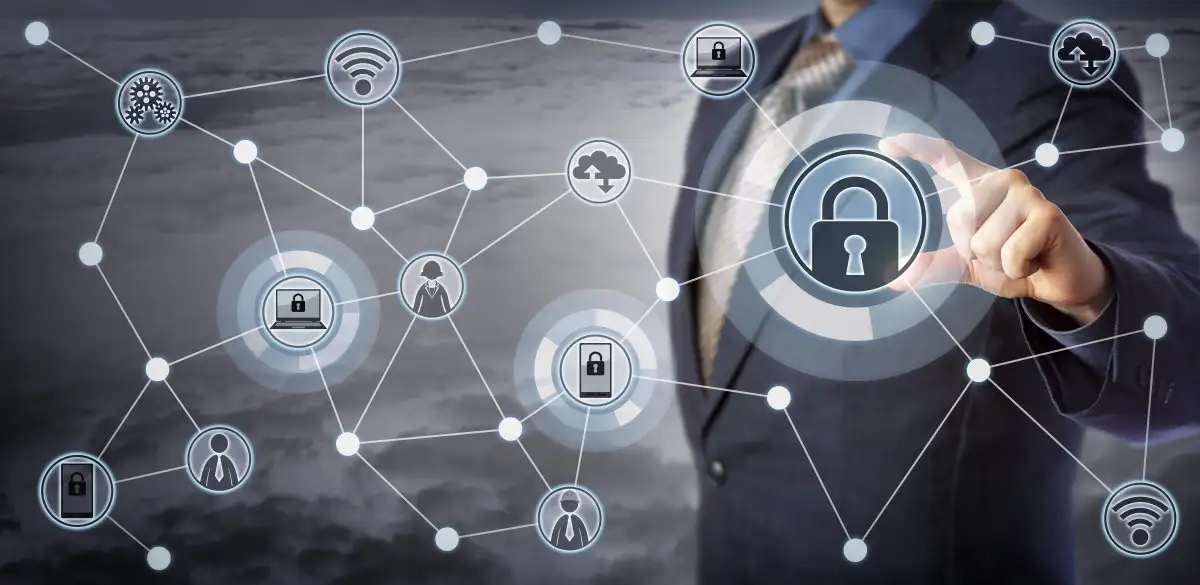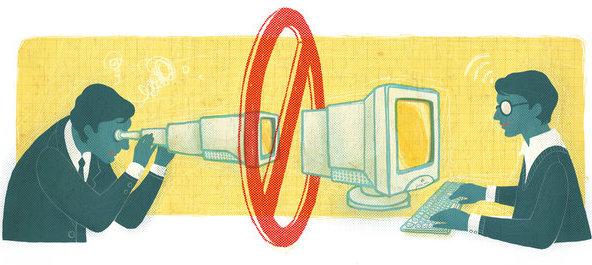
Rising Issues
In this rapid age of digital information, our personal privacy has been exposed to a more complex and sensitive environment than ever before. Due to the flourishing technology, our lives are increasingly inseparable from the Internet and various electronic devices, and all of this has potentially increased the leakage of privacy. You may not imagine that if once your personal information is exposed, it may lead to very serious consequences. Due to the high concentration and easy dissemination of personal information, once leaked, it may lead to identity theft, fraud, malicious harassment,and other problems. What’s more serious is that these data may also be used to manipulate public opinion, interfere in elections and other political activities, posing a threat to the stability of the country and society. These may sound far away from your life? In fact, on the contrary, each of us is a potential victim.
The rise and application of modern computer information and network technologies are often described as a “double-edged sword.” On one hand, they significantly boost sectors like the economy, culture, education, science, and politics through the benefits of computer intelligence, fast and convenient information exchange, and the collapsing of time and space barriers. On the other hand, they have also led to a surge in online violations: your personal information is leaked online, personal computers are hacked, and online shopping records are exposed. These issues have become persistent concerns for many internet users, creating a widespread sense of insecurity that disrupts normal work and daily life to varying extents. Particularly in recent years, as computer network technology has rapidly evolved, the threats to personal online privacy rights have reached unprecedented levels. Strengthening the protection of personal online privacy has thus become a critical challenge for ensuring the healthy development of information networks.
You may have realized that personal privacy in the digital age is no longer the privacy in the physical space in the traditional sense. In the digital world, your personal privacy is actually more of a data-based existence. For example, your personal information, browsing history, purchasing habits, social relationships, etc. will be converted into data and stored in various servers and network spaces. While these collected data facilitate us to enjoy various convenient services, they also face the risk of being leaked, abused and illegally obtained. So, in such an era, what exactly is personal privacy? How can we ensure the security of our personal privacy?

Privacy in Traditional Sense
In the traditional sense, definitions of privacy are mainly focused on physical aspects. For example, one should always process rights of protecting his or her personal information, manage private activities and stay in private space that public interest should not be a concern. Up to now, scholars from various countries are still in deep discussions on the definition of privacy. Because the connotation and extension of privacy need to be further clarified along with the changes of time. The core value of privacy is to protect the freedom of one’s private life from disclosure and interference. This is related to human dignity and value. Therefore, in another word, protecting people’s privacy is to protect human dignity and value, which is the consensus that human society is constantly pursuing. Furthermore, the traditional understanding and protection of privacy cannot adapt to the changes in the era of big data. Our privacy protection issues and new strategies still need to be further explored.
Privacy in Information Age
According to Terry Flew (2021), in the online world, privacy concerns take on a new dimension because of the large amounts of information available, the compromises users must make between maintaining privacy and enjoying free online services, and the potential for businesses and government agencies to use big data for personal profiling without the user’s fully informed consent.
The right to online privacy is particularly susceptible to breaches, and when infringements occur, they often inflict considerable harm on those affected. Typically, when individuals seek information online, they must disclose personal details such as their name, gender, age, contact information, and mailing address. Moreover, Internet service providers often collect personal data without users’ explicit awareness. Thanks to developments in Internet and database technologies, it has become easier than ever to gather, organize, analyze, and exploit personal information. As a result, online privacy is even more fragile than traditional privacy, and given the Internet’s rapid information spread and vast reach, any violation can cause severe and widespread damage to the victim.
“Privacy is widely regarded as a fundamental human right, though in practice, it is often constrained by the need to balance it with other competing rights, obligations, and social norms” (Flew,2021). And it is no longer just about rights, but also about dignities.

Does Any of These Sound Familiar to You?
Your phone always receives various “winning” text messages for no apparent reason.
You have just consulted about buying a house and then received many calls from real estate agents.
Always receive sales pitches asking whether you need to improve academic qualifications for unknown reasons.
Small beauty salons require ID number and address to enjoy discounts.
When using certain brands of power banks, you are required to enable “USB debugging mode” or grant address book permissions.
When using entertainment apps to upload selfies to generate face-swapped videos, the privacy terms contain a clause that states “permanent authorization to use facial information.”
Many of the above real-life cases indicated that how transparent privacy could be, even if many people tried a lot to hide. Aren’t those cases make you feel that your life is being spied on, as if someone implanted a micro camera in your house and live streaming your privacy to public every day?
Today, the right to online privacy reflects both personal and economic attributes. Traditionally, privacy was considered part of spiritual personality rights within civil law. It focused on protecting the harmony of private life and controlling personal information to preserve human dignity, without being seen as having financial value. However, with the rise of the Internet, technological advancements have combined the nature of user data with commercial value. Beyond basic identifiers like names and photos , other information such as emails, shopping preferences, and hobbies can now be commercially exploited and carry economic significance. Motivated by profit, some individuals seek out others’ private data, valuing its “commodity value” rather than its “use value.” In today’s information society, data has become a rare and valuable resource, providing huge possibilities of privacy breaches. Meanwhile, network technologies promotes such violations, and growing public awareness has led to greater demands for legal protections.
All in all, privacy in information age now covers a much wider range of interests compared to traditional privacy, which is also considered a big difference due to disparate social context and demands.

A Case in China: User Data Breach Incident of Didi Chuxing
Didi Chuxing is a mobile travel platform developed by Beijing Xiaoju Technology Co., Ltd. in 2012. It provides choices like normal taxis, tailored taxi service, shared bicycles and other comprehensive functions to more than 450 million users. It is was the most welcomed mobile travel platform in China, with more than 500 million users worldwide, covering China and overseas markets such as Latin America, Australia, and Russia.
By 2015, Didi had completed $3 billion in financing after two rounds. And in 2016, this successful platform which had only been developed for a short period of four years, merged with UBER CHINA. After the merger, the company’s valuation was reportedly $35 billion.
However, on July 1, 2021, Didi went public in the United States. Surprisingly, there wasn’t a single news. There was no report, no announcement on the official website, no relevant photos on the Internet, and even Didi’s employees did not post any Moments on WeChat. A super enterprise with a market value of 400 billion yuan was just quietly listed like that. That is certainly incredible. Later on July 2, the CAC (Cyberspace Administration of China) decided to start a cybersecurity review on Didi. To prevent the further expand of risks, Didi had to suspend new user registration to cooperate with the CAC’s review. In the evening of July 4, CAC announced a notice to the public that after investigation and verification, Didi had illegally collected users’ personal information through unauthorized ways. And later the app was removed from the app store. According to CAC, based on the conclusions of the network security review and the problems and clues found, the State Internet Information Office filed a case against Didi Global Co., Ltd. for suspected illegal acts in accordance with the law. After investigation, it was found that Didi Global Co., Ltd. violated the “Network Security Law”, “Data Security Law” and “Personal Information Protection Law” with clear facts, conclusive evidence, serious circumstances and bad nature (CAC, 2022). It was until this time that everyone knew about the whole story.
From the words “serious circumstances and bad nature”, we can see that Didi not only ignored the guarantee of personal information, but also threatened the security of the country. National security cannot be violated, no matter who it is or what means are used. A nation’s security is crucial for protecting its territorial integrity, safeguarding the well-being of its citizens, ensuring sustainable economic and social progress, and defending other vital national interests from potential threats. No matter which country we are in, these are closely related to each of us. This also further illustrates the importance of privacy in the information age to individuals, companies, and countries.

How Should Privacy in Information Age Be Protected?
Suzor (2019) argues that social media platforms serve as spaces where we interact and engage with one another, but they also establish the guidelines for how we participate. No platform is truly “neutral”; each one makes choices — through its policies and technical design — that influence what content users can share and what content becomes visible. Given how deeply these major platforms are woven into our daily lives, their decisions carry significant influence (Suzor,2019).
Enterprises and Internet platforms are important entities that use data. Enterprises should level up their construction and management of systems. They should also strengthen communications to jointly build a privacy protection network to enhance the protection of privacy. Enterprises should add several corresponding positions and departments to take charge of specific works in privacy protection affairs.
According to Nissenbaum (2018)’s theory of Contextual Integrity, the management of information is a crucial principle of communication, yet it is always shaped by specific actors, particular kinds of information, and the surrounding social context (Nissenbaum,2018). The way enterprises and platforms collect, use and disclose user information should be consistent with people’s reasonable expectations in specific situations, and should provide appropriate and targeted protection based on the different ways in which information flows in different social environments and actual situations. Most importantly, they must understand and respect these different social areas and their different information norms.
Conclusion
In the information age, the collection and use of personal information has provided countless conveniences for our lives, but the changes and expansion of the concept of privacy also remind us that privacy protection is a ubiquitous and vital social issue. Whether from the perspective of national security, corporate development or personal protection, we should pay more attention to this topic and remain vigilant. Only when everyone has a good awareness of privacy protection can our digital network environment be improved and trustworthy.
References
Flew, T. (2021, Autumn). Regulating Platforms. Polity. https://www.politybooks.com/bookdetail?book_slug=regulating-platforms–9781509537075
Nissenbaum, H. (2018, June). Respecting Context to Protect Privacy: Why Meaning Matters. ProQuest. https://www.proquest.com/docview/2045936826?_oafollow=false&accountid=14757&pq-origsite=primo&sourcetype=Scholarly%20Journals
Suzor, N. P. (2019, June). Lawless: The Secret Rules That Govern Our Digital Lives. Cambridge University Press. https://www.cambridge.org/core/books/lawless/8504E4EC8A74E539D701A04D3EE8D8DE#
The Cyberspace Administration of China (CAC) Has Imposed an Administrative Penalty on Didi Global Co., Ltd. in Accordance with the Law, Following a Cybersecurity Review. (2022, July 21). Cyberspace Administration of China. https://www.cac.gov.cn/2022-07/21/c_1660021534306352.htm

Be the first to comment